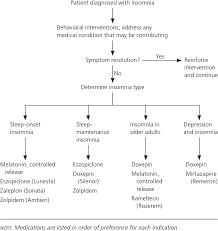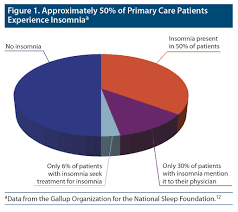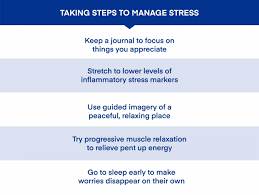The Importance of Addressing Sleep Maintenance Insomnia
Sleep maintenance insomnia, also known as middle-of-the-night insomnia, is a common sleep disorder characterized by difficulty staying asleep throughout the night. Individuals with this condition often find themselves waking up multiple times during the night and having trouble falling back asleep, leading to disrupted and poor-quality sleep.
Treatment Options for Sleep Maintenance Insomnia
Fortunately, there are effective treatment options available for managing sleep maintenance insomnia and improving sleep quality:
- Cognitive Behavioral Therapy for Insomnia (CBT-I): CBT-I is a structured program that helps individuals identify and change negative thoughts and behaviors that contribute to insomnia. It includes techniques such as stimulus control, sleep restriction, relaxation training, and cognitive therapy.
- Sleep Hygiene Practices: Adopting healthy sleep habits can significantly improve sleep quality. This includes maintaining a consistent sleep schedule, creating a relaxing bedtime routine, optimizing your sleep environment, avoiding stimulants close to bedtime, and engaging in regular physical activity.
- Medication: In some cases, healthcare providers may prescribe medication to help manage sleep maintenance insomnia. These medications may include sedatives or hypnotics that promote relaxation and improve sleep continuity. It’s important to consult with a healthcare professional before starting any medication regimen.
- Relaxation Techniques: Practicing relaxation techniques such as deep breathing exercises, progressive muscle relaxation, meditation, or yoga before bedtime can help calm the mind and body, making it easier to fall asleep and stay asleep throughout the night.
Consulting a Healthcare Professional
If you are struggling with sleep maintenance insomnia, it’s essential to consult with a healthcare professional or a sleep specialist. They can help diagnose the underlying causes of your insomnia and develop a personalized treatment plan tailored to your specific needs.
By addressing sleep maintenance insomnia early on and implementing effective treatment strategies, you can improve your overall quality of life and well-being by getting the restful and rejuvenating sleep you need.
Six Effective Strategies for Overcoming Sleep Maintenance Insomnia
- Establish a consistent sleep schedule by going to bed and waking up at the same time every day.
- Create a relaxing bedtime routine to signal your body that it’s time to wind down and prepare for sleep.
- Make your bedroom conducive to sleep by keeping it dark, quiet, and at a comfortable temperature.
- Limit exposure to screens and bright lights before bedtime as they can interfere with your body’s natural sleep-wake cycle.
- Avoid heavy meals, caffeine, and alcohol close to bedtime as they can disrupt your ability to fall asleep or stay asleep.
- Consider cognitive-behavioral therapy for insomnia (CBT-I) which is an effective treatment for sleep maintenance insomnia.
Establish a consistent sleep schedule by going to bed and waking up at the same time every day.
Establishing a consistent sleep schedule is a crucial tip for managing sleep maintenance insomnia. By going to bed and waking up at the same time every day, you help regulate your body’s internal clock, known as the circadian rhythm. This regularity reinforces your body’s natural sleep-wake cycle, making it easier to fall asleep and stay asleep throughout the night. Consistency in your sleep schedule can improve the quality and duration of your sleep, leading to better overall rest and increased daytime alertness.
Create a relaxing bedtime routine to signal your body that it’s time to wind down and prepare for sleep.
Creating a relaxing bedtime routine is a valuable tip for managing sleep maintenance insomnia. By establishing a consistent series of calming activities before bed, such as reading a book, taking a warm bath, or practicing gentle stretching exercises, you can signal to your body that it’s time to wind down and prepare for sleep. This routine helps promote relaxation and signals to your brain that it’s time to transition from wakefulness to rest, setting the stage for a more peaceful and uninterrupted night’s sleep.
Make your bedroom conducive to sleep by keeping it dark, quiet, and at a comfortable temperature.
Creating a sleep-conducive environment in your bedroom is essential for managing sleep maintenance insomnia. To promote better sleep quality, ensure that your bedroom is dark, quiet, and maintained at a comfortable temperature. Eliminate sources of light that can disrupt your sleep, such as electronic devices or streetlights outside. Invest in blackout curtains or an eye mask if needed. Reduce noise disturbances by using earplugs or a white noise machine. Keeping the room at a comfortable temperature, typically on the cooler side, can help signal to your body that it’s time to rest. By optimizing your bedroom environment for sleep, you can enhance your chances of staying asleep throughout the night and waking up feeling refreshed in the morning.
Limit exposure to screens and bright lights before bedtime as they can interfere with your body’s natural sleep-wake cycle.
Limiting exposure to screens and bright lights before bedtime is a crucial tip in the treatment of sleep maintenance insomnia. The blue light emitted by electronic devices can suppress the production of melatonin, a hormone that regulates our sleep-wake cycle. By reducing screen time and dimming lights in the evening, you can signal to your body that it’s time to wind down and prepare for sleep. This simple adjustment can help improve your ability to stay asleep throughout the night and promote a more restful and rejuvenating sleep experience.
Avoid heavy meals, caffeine, and alcohol close to bedtime as they can disrupt your ability to fall asleep or stay asleep.
Avoiding heavy meals, caffeine, and alcohol close to bedtime is crucial when addressing sleep maintenance insomnia. These substances can disrupt your ability to fall asleep or stay asleep by interfering with your body’s natural sleep-wake cycle. Heavy meals can cause indigestion and discomfort, making it harder to relax and drift off to sleep. Caffeine is a stimulant that can keep you awake and alert, even hours after consumption. Alcohol, while initially sedating, can lead to fragmented sleep patterns and decreased sleep quality as the night progresses. By being mindful of your intake of these substances before bedtime, you can create a more conducive environment for restful and uninterrupted sleep.
Consider cognitive-behavioral therapy for insomnia (CBT-I) which is an effective treatment for sleep maintenance insomnia.
Consider cognitive-behavioral therapy for insomnia (CBT-I) as an effective treatment option for sleep maintenance insomnia. CBT-I is a structured program designed to help individuals identify and modify negative thoughts and behaviors that contribute to insomnia, including difficulties staying asleep throughout the night. By incorporating techniques such as stimulus control, sleep restriction, relaxation training, and cognitive therapy, CBT-I can address the underlying causes of sleep maintenance insomnia and improve overall sleep quality.





Wow, wonderful blog structure! How long have you ever
been blogging for? you make running a blog look easy. The full look of your website is excellent, as
well as the content! You can see similar here najlepszy sklep
Thank you for your kind words! We’re glad you found the blog informative and visually appealing. When it comes to addressing sleep maintenance insomnia, our goal is to provide valuable insights and effective strategies to help individuals improve their sleep quality. Feel free to explore more of our content on managing insomnia and optimizing sleep health.